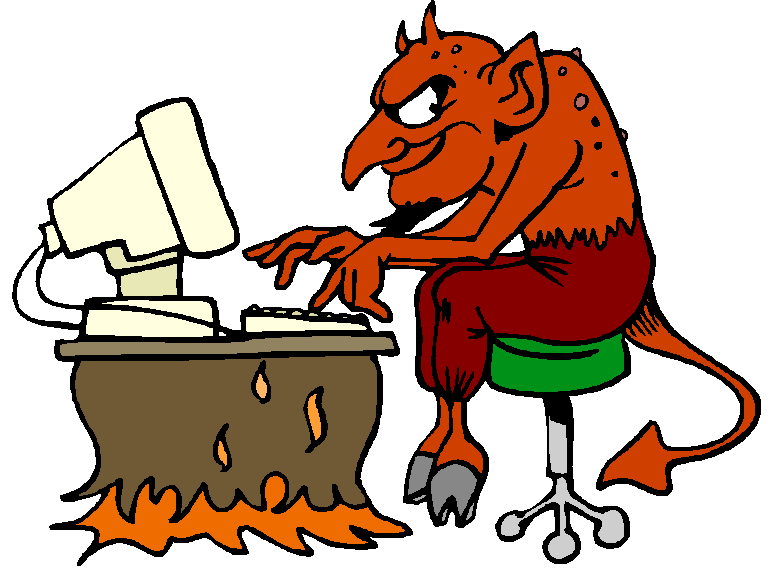1. Thou shalt not use a computer in ways that may harm people.
This commandment says that it is unethical to use a computer to harm another user. It is not limited to physical injury. It includes harming or corrupting other users' data or files. The commandment states that it is wrong to use a computer to steal someone's personal information.
2. Thou shalt not interfere with other people's computer work.
Computer software can be used in ways that disturb other users or disrupt their work. Viruses, for example, are programs meant to harm useful computer programs or interfere with the normal functioning of a computer.
3. Thou shalt not snoop around in other people's computer files.
We know it is wrong to read someone's personal letters. On the same lines, it is wrong to read someone else's email messages or files. Obtaining data from another person's private files is nothing less than breaking into someone's room.
4. Thou shalt not use a computer to steal.
Stealing sensitive information or leaking confidential information is as good as robbery. It is wrong to acquire personal information of employees from an employee database or patient history from a hospital database or other such information that is meant to be confidential.
5. Thou shalt not use a computer to bear false witness.
Spread of information has become viral today, because of the Internet. This also means that false news or rumors can spread speedily through social networking sites or emails. Being involved in the circulation of incorrect information is unethical.
6. Thou shalt not copy or use proprietary software for which you have not paid.
Like any other artistic or literary work, software is copyrighted. A piece of code is the original work of the individual who created it. It is copyrighted in his name. In case of a developer writing software for the organization he works for, the organization holds the copyright for it.
7. Thou shalt not use other people's computer resources without authorization or proper compensation.
Multi-user systems have user specific passwords. Breaking into some other user's password, thus intruding his private space is unethical. It is not ethical to hack passwords for gaining unauthorized access to a password-protected computer system.
8. Thou shalt not appropriate other people's intellectual output.
Programs developed by a software developer are his/her property. If he is working with an organization, they are the organization's property. Copying them and propagating them in one's own name is unethical.
9. Thou shalt think about the social consequences of the program you are writing or the system you are designing.
Looking at the social consequences that a program can have, describes a broader perspective of looking at technology. A computer software on release, reaches millions. Software like video games and animations or educational software can have a social impact on their users.
10. Thou shalt always use a computer in ways that ensure consideration and respect for your fellow humans.
The communication etiquette we follow in the real world applies to communication over computers as well. While communicating over the Internet, one should treat others with respect. One should not intrude others' private space, use abusive language, make false statements or pass irresponsible remarks about others.


